UP IHR conducts capacity building workshops on freedom of association for security sector, trade unions
The UP Institute of Human Rights (UP IHR), together with the Foundation for Integrative and Development Studies, International Labour Organization (ILO), and European Union, conducted the “Capacity Building Workshop for Security Sector and Trade Unions.” This two-day workshop held on 21 and 22 October 2021 formed part of the ILO’s Safe and Decent Work in Ecozones Project.
Day 1 (Basic Principles, Guidelines for State Agents, and Mechanisms of Freedom of Association)
Mr. Khalid Hassan, the Director of the ILO Country Office for the Philippines, opened the event and underscored the need to develop norms that fulfill workers’ rights under core ILO Conventions. UP IHR Director Prof. Elizabeth H. Aguiling-Pangalangan then introduced the objectives of the workshop, one of which is to ensure the country’s compliance with international labor standards by amending existing guidelines related to freedom of association (FoA) and collective bargaining. She likewise drew the connection between violations of FoA and the mandate of the Inter-Agency Committee on Extra-Legal Killings, Enforced Disappearances, Torture and Other Grave Violations of the Right to Life, Liberty and Security of Persons (IAC) created under Administrative Order 35.
UP IHR Law Reform Specialist Atty. Daniel Lising, who served as the emcee for the first day, introduced the main lecturer Prof. Patricia Salvador Daway. A leading expert on labor law, she discussed the basic principles of freedom of association, as well as its statutory, constitutional, and international law bases. In concluding her presentation, Prof. Daway cited the 2015 decision of Baron v EPE Transport (G.R No. 202645) that recognized labor as an “active and equal partner of capital,” not just its “mere employee.”
Asst. Prof. Michael Tiu, Jr., UP IHR Consultant, then reviewed the Joint Industrial Peace Concerns Office (JIPCO) and the proposed Memorandum of Agreement/Implementing Rules and Regulation (MOA/IRR) of the PNP-PEZA for Industrial Peace and Program Office (AIPPO). He identified potential issues and gaps in the proposed MOA/IRR, including operational definitions of key concepts like investigation, surveillance, and coordination.
Next, representatives from the security groups and trade unions gave their reactions to the lectures. Atty. Jose Sonny Matula, President of the Federation of Free Workers, expressed concerns on the longstanding and well-documented anti-union efforts and red-tagging by security forces in ecozones. Atty. Argyle Karen L. Bajas, a Mediator-Arbiter of the DOLE Bureau of Labor Relations, on the other hand, highlighted DOLE’s sole jurisdiction to adjudicate or mediate labor disputes as provided in the Guidelines, and reiterated that the PNP’s involvement is limited to peace and order and implementation of legal orders. Lastly, PCol. Lope Ma. U. Lim of the PNP Human Rights Office reiterated the willingness of the security sector to consult with labor groups.
Day 2 (Judicial Remedies on Freedom of Association)
Opening the event, Prof. Aguiling-Pangalangan discussed the results of the test poll taken by the participants during the Day 1 workshop. She commended the participants on their awareness of labor standards and fundamental principles of freedom of association.
Atty. Glenda Litong, UP IHR Law Reform Specialist, emceed the second day of the workshop and introduced .Prof. Evelyn (Leo) Battad of the UP College of Law. Prof. Battad explained the fundamental rights of individuals during searches, seizures, arrests, and detention. In particular, she situated the discussion in the context of strikes and pickets, during which workers are protected under the Labor Code and existing DOLE 2011 and 2012 Guidelines. For instance, to protect workers in their exercise of their freedom of association, these guidelines require law enforcers to stay outside the 50-meter radius from the picket/strike/lockout area and to intervene using non-violent means only when necessary.
The fifty participants were then divided into four groups and tasked with replying to questions related to the lecture. Prof. Battad then commented on the group reports in the plenary session. This group activity was facilitated by UP IHR lawyers, Prof. Aguiling-Pangalangan, Asst. Prof. Tiu, Atty. Lising, and Atty. Raymond Baguilat while, IHR Research Assistants served as documentors.

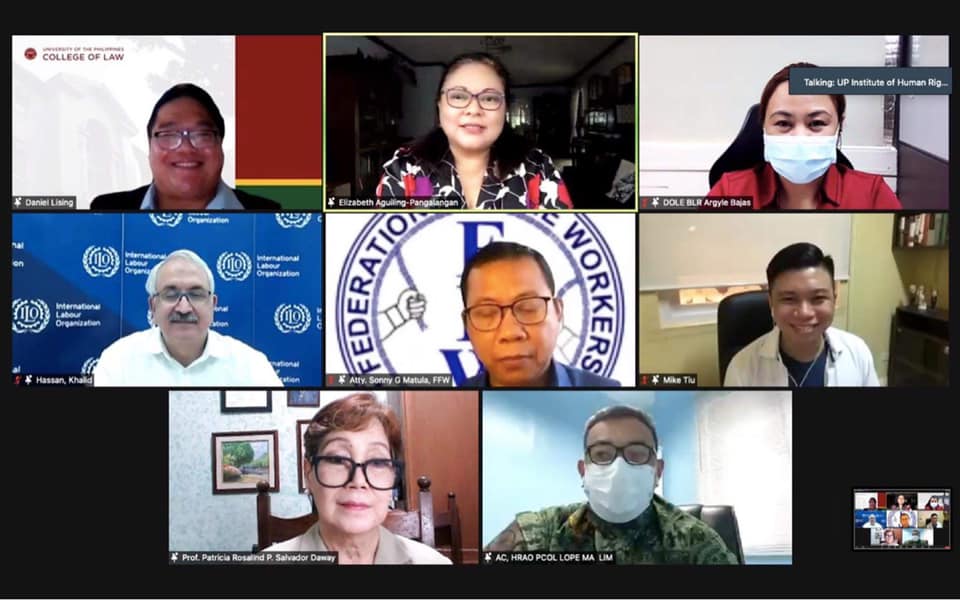
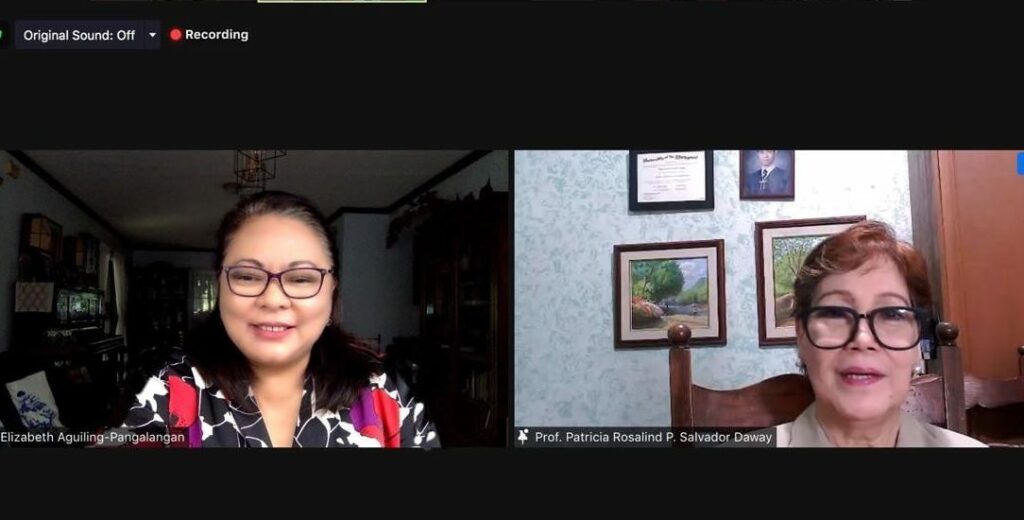
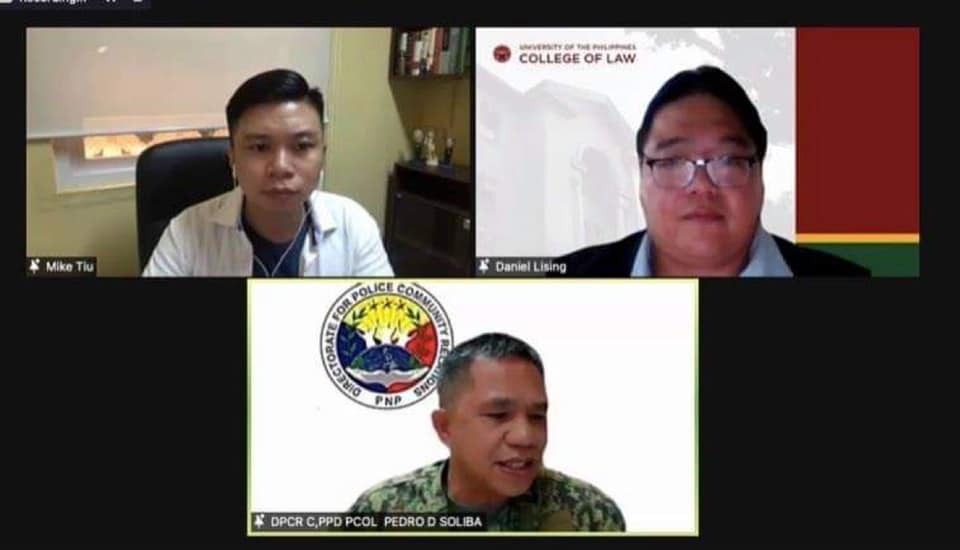
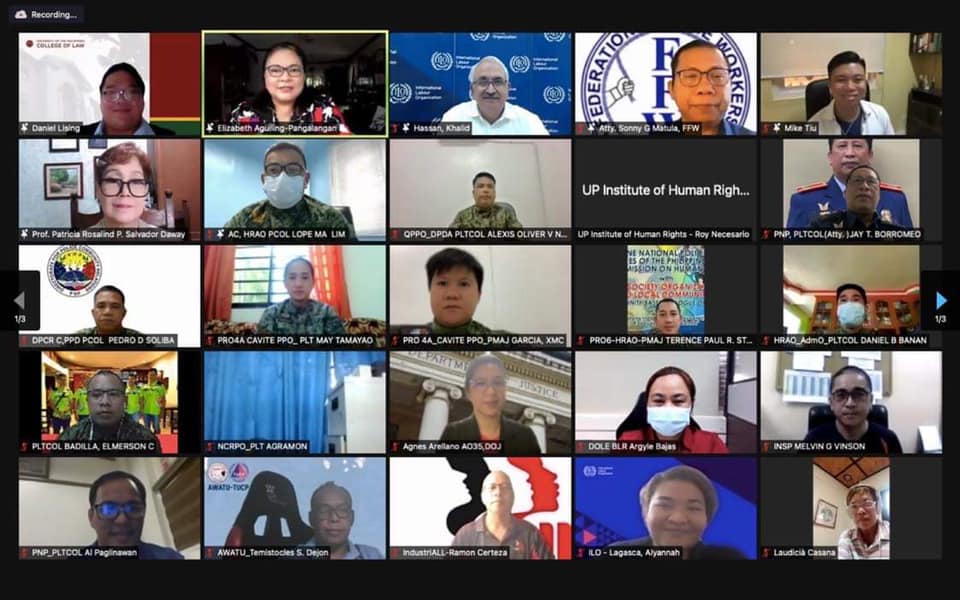
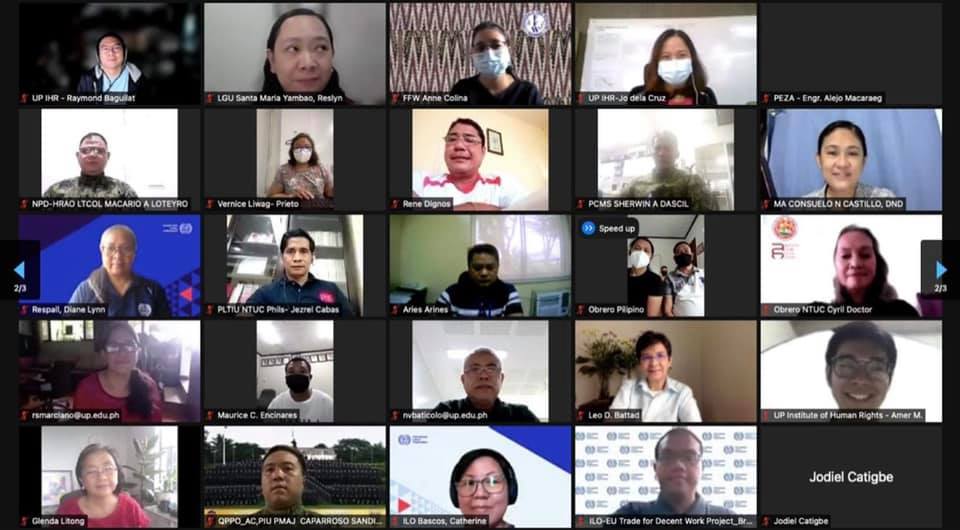
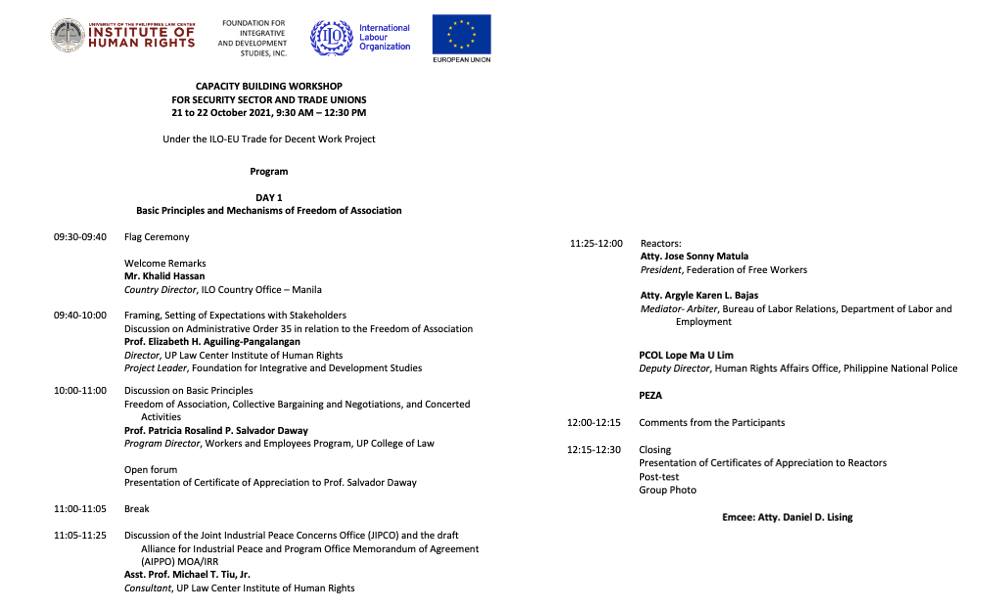
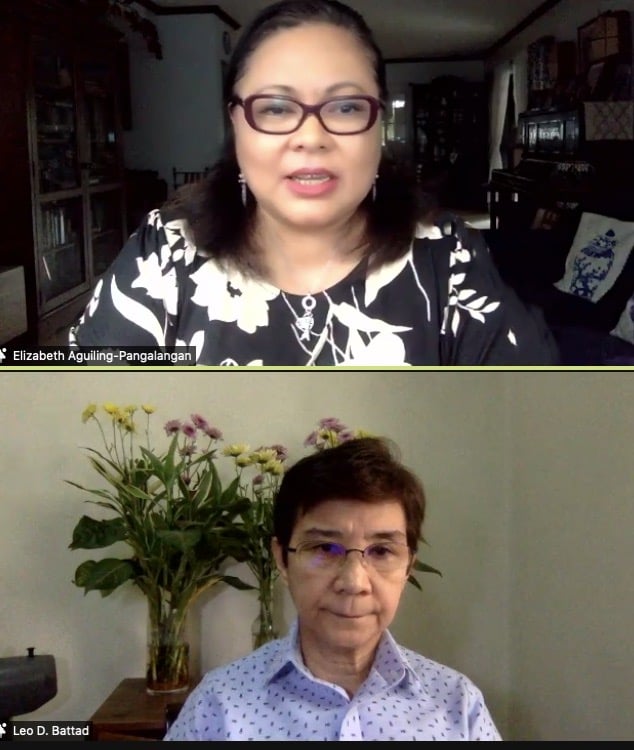
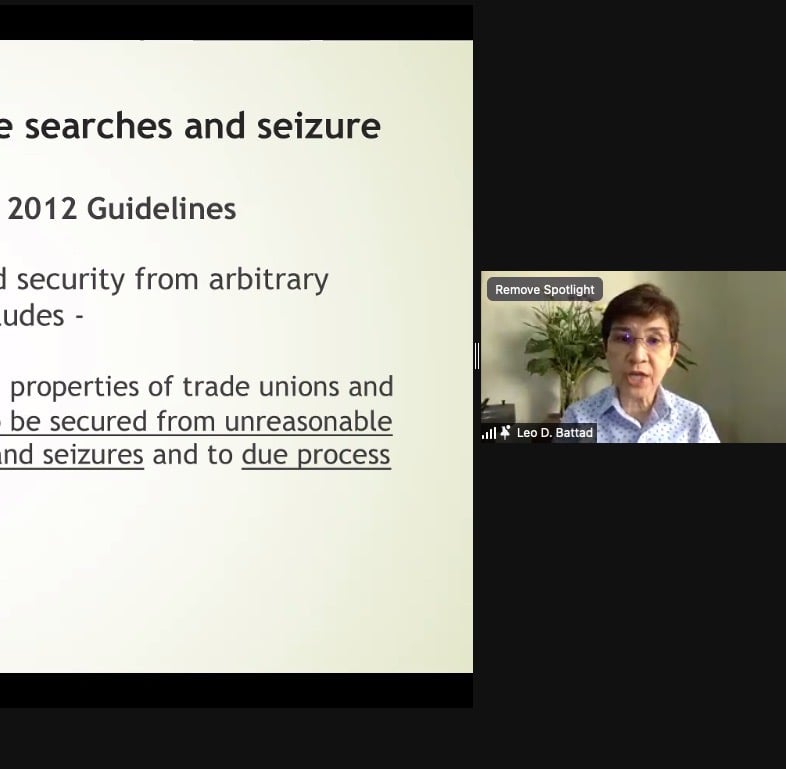
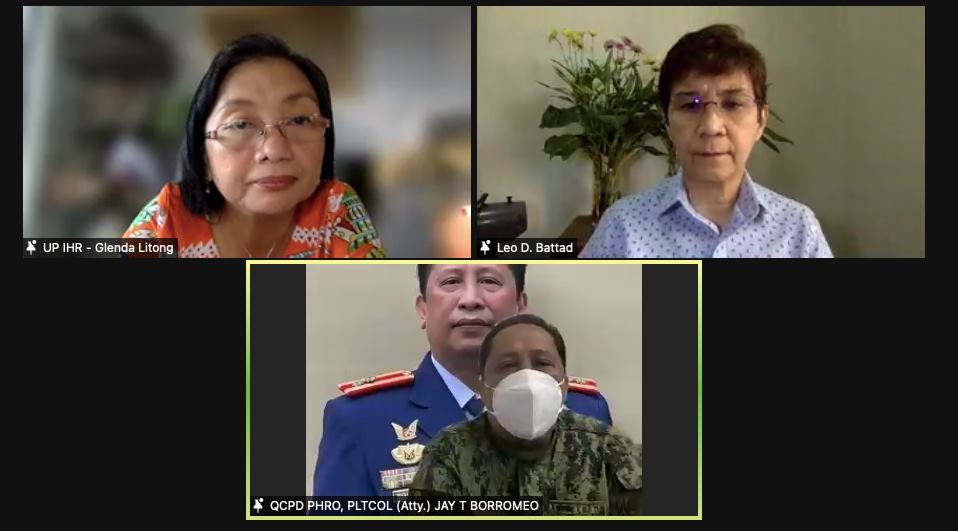
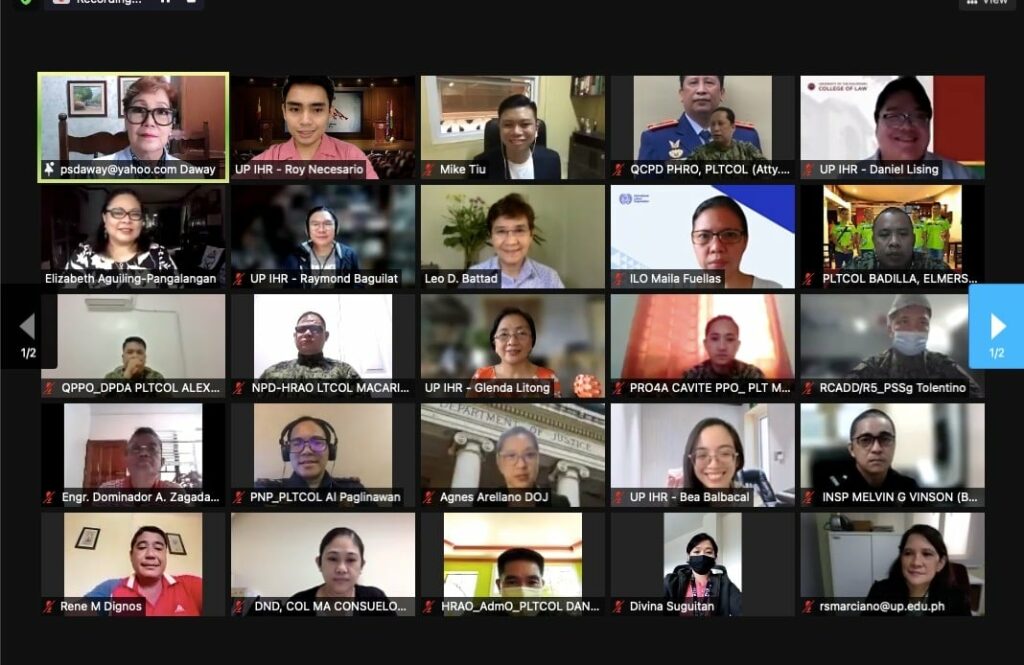
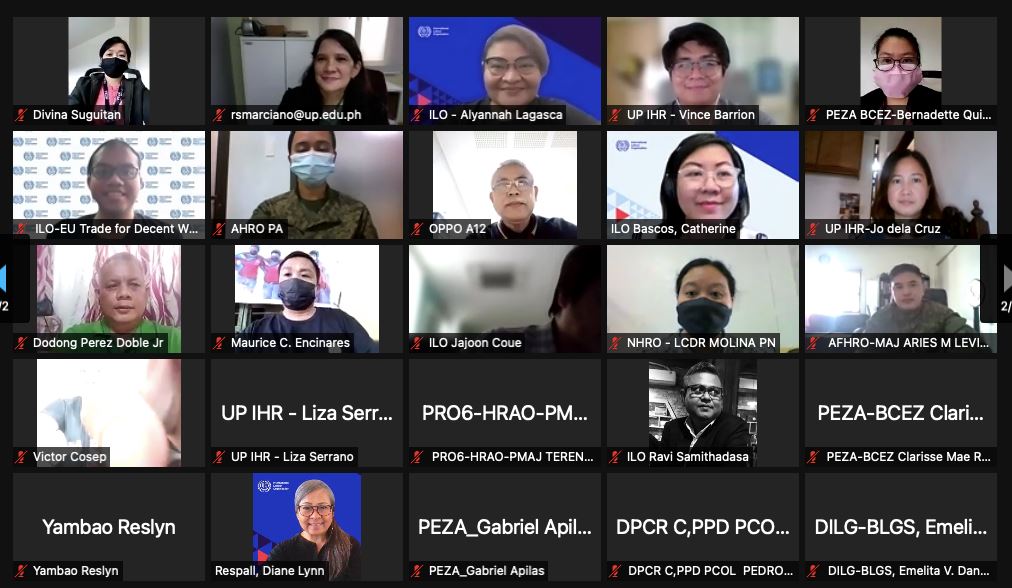






































































































 on the upper right corner to select a video.
on the upper right corner to select a video.